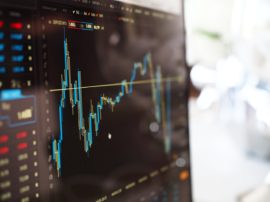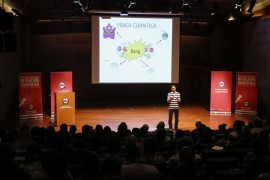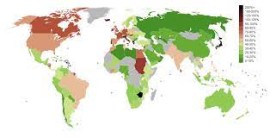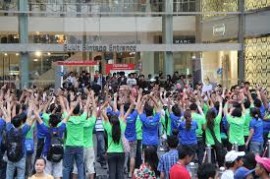- Fecha(s): 16/06/2023
- Lugar: Work-Café - Facultad de Economía y Empresa - Universidad de Murcia
- Ponente: Miguel López Morell, Bernardo Batiz-Lazo

Abstract Topic: Revisit the extant literature on the growth of Spanish banks in Latin America through the analysis of the processes of IT integration. We explore the technological and management issues around the implementation of global platforms (developed by either third parties or at head office) which replaced, interfaced or co-existed with pre-existing local IT…
- Fecha(s): 01/06/2023
- Lugar: Seminario del Departamento de Fundamentos del Análisis Económico - Universidad de Murcia
- Ponente: Santiago Sánchez Pagés

An extensive literature has studied both in the field and in the lab the effects on performance of providing absolute and relative verifiable feedback, finding mixed results. Another branch of the literature has studied the effects of non-verifiable centrally-provided feedback, also with mixed results. But, to the best of our knowledge, no study has explored…
- Fecha(s): 01/06/2023
- Lugar: Seminario del Departamento de Fundamentos del Análisis Económico - Universidad de Murcia
- Ponente: Íñigo Iturbe Ormaetexe

Systematic biases in return expectations may distort stock prices and lead to inefficient capital allocation. In this paper, we report experimental evidence that buying a stock induces optimistically biased expectations when its price drops below the purchase price. We find this effect in a controlled laboratory experiment as well as in a six-week-long online experiment…
- Fecha(s): 11/05/2023
- Lugar: Online (el enlace se proporcionará a través del Aula Virtual)
- Ponente: Bernardo Batiz-Lazo

Abstract Debit card payments are the cornerstone of the cashless economy. They exemplify the transfer of monetary balances, enabling on-the-spot transactions through online, real-time, electronic networks. While debit cards were an aspiration in the 1960s, it was during the mid-1970s that the first significant attempts were made to make these aspirations a reality in the…
- Fecha(s): 06/10/2022
- Lugar: Salón de Grados de la Facultad de Economía y Empresa de la Universidad de Murcia
- Ponente: Paul De Grauwe

El eminente economista Paul De Grauwe, en la víspera del día de la ceremonia en la que tendrá lugar su investidura como Doctor Honoris Causa de la Universidad de Murcia, impartirá un seminario/conferencia dirigido a los estudiantes del programa de doctorado DEcIDE y, en general, a todos los estudiantes y profesores de la Facultad de…
- Fecha(s): 16/06/2022
- Lugar: Universidad de Murcia - Departamento de Fundamentos del Análisis Económico
- Ponente: Debrah Meloso

We use high-performance Continuous Double Auction trading software and algorithms to study the effects of algorithmic trading on pricing and allocative efficiency in a laboratory environment. In addition to trading manually, participants can deploy algorithms that bid marginal valuations modulo a spread and a market-making (maker) or liquidity-taking (taker) parameter. The spread and maker/taker parameters…
- Fecha(s): 30/05/2022
- Lugar: Instituto Centro de Investigación Operativa (Universidad Miguel Hernández). Se grabará.
- Ponente: Agustí Segarra Blasco

La investigación científica y la divulgación, esto es poner al alcance de un público más amplio son dos caras de una misma moneda, pero no es lo mismo. Entre los científicos y también entre los economistas encontramos a grandes investigadores que con el paso de los años también se han convertido en divulgadores muy populares…
- Fecha(s): 10/03/2022
- Lugar: Semiario del Departamento de FAE de la Universidad de Murcia
- Ponente: Concepción González García

In this paper, I build a dynamic general equilibrium model calibrated to the U.S. economy to study the macroeconomic effects of alternative fiscal consolidation strategies in a context where the private sector is heavily indebted. Fiscal consolidation is defined as a permanent reduction of the public debt-to-GDP ratio by means of government spending cuts or…
- Fecha(s): 15/06/2020
- Lugar: SEMINARIOS ONLINE CIO (UMH): http://cio.edu.umh.es/seminariosonline/ (Se grabará)
- Ponente: Marco A. López Cardá, Catedrático de Estadística e Investigación Operativa, (Universidad de Alicante.

En esta presentación se analizan las diferentes razones que contribuyen a que las Matemáticas se encuentren, hoy en día, en un primer plano de actualidad. Destacaríamos, en primer lugar, su presencia, como lenguaje y herramienta fundamental, en todas las ciencias (incluidas las sociales) y ramas de la tecnología. Nos detendremos en temas específicos en los…
- Fecha(s): 06/03/2020
- Lugar: Seminario Economía Aplicada - Planta 3
- Ponente: Alfonso Rosa

We study experimentally how to prevent bank runs using a mechanism inspired in Andolfatto et al. (2017). They propose a mechanism that eliminates bank runs as an equilibrium situation of the deposit contract and implements uniquely the efficient outcome. In our experimental enviroment bank runs may emerge both as a coordination failure in equilibrium and…











